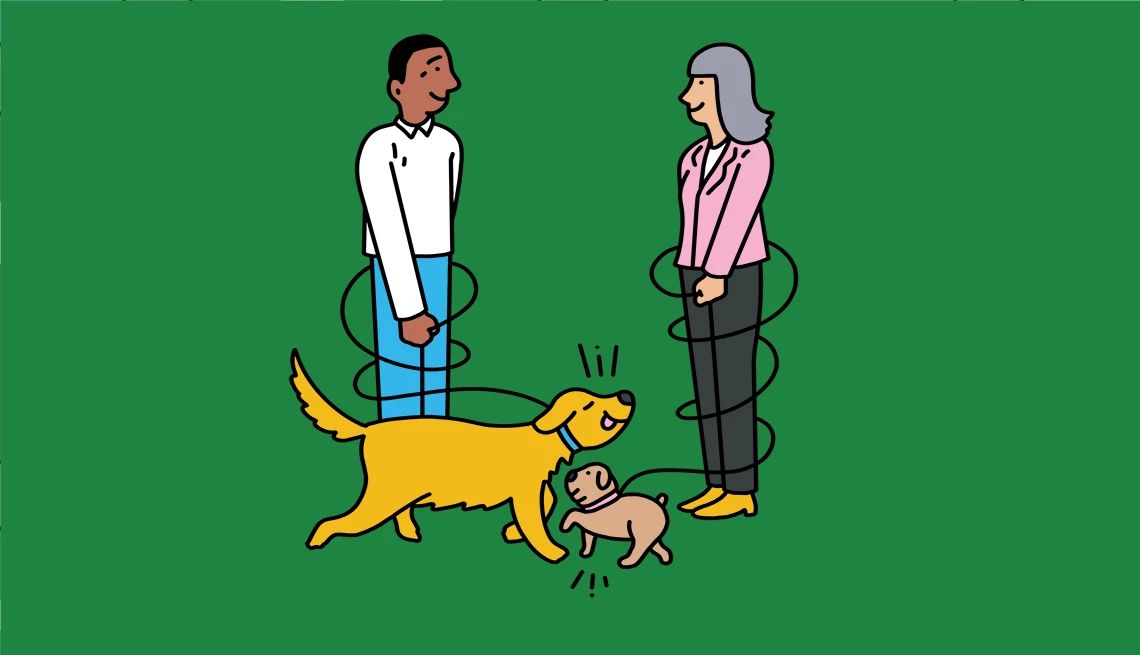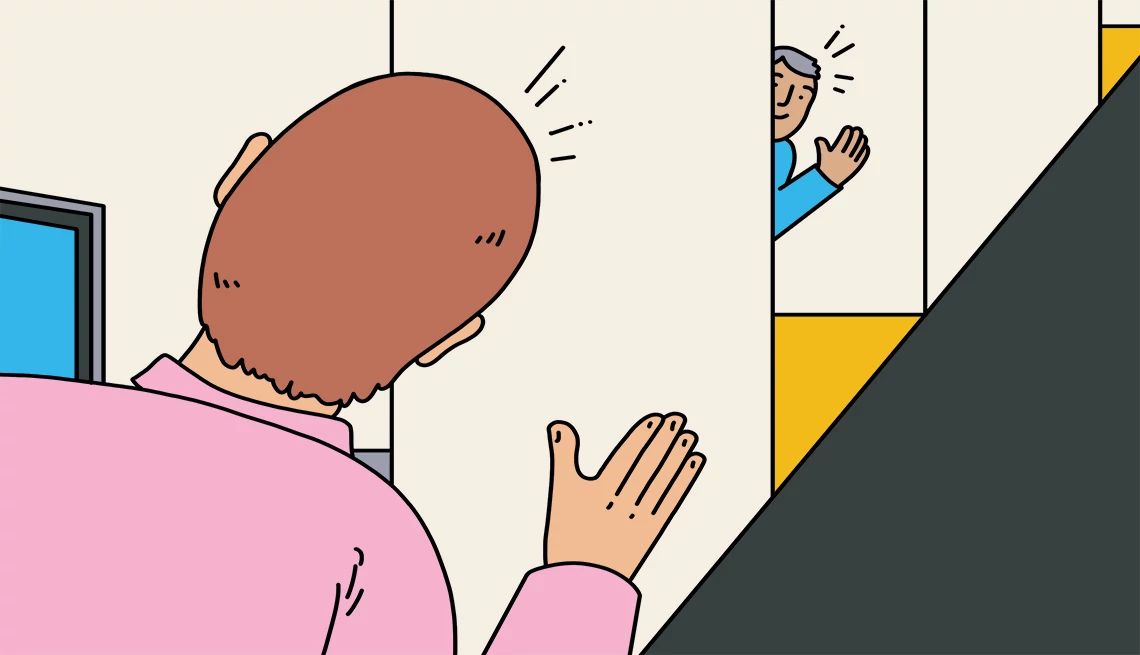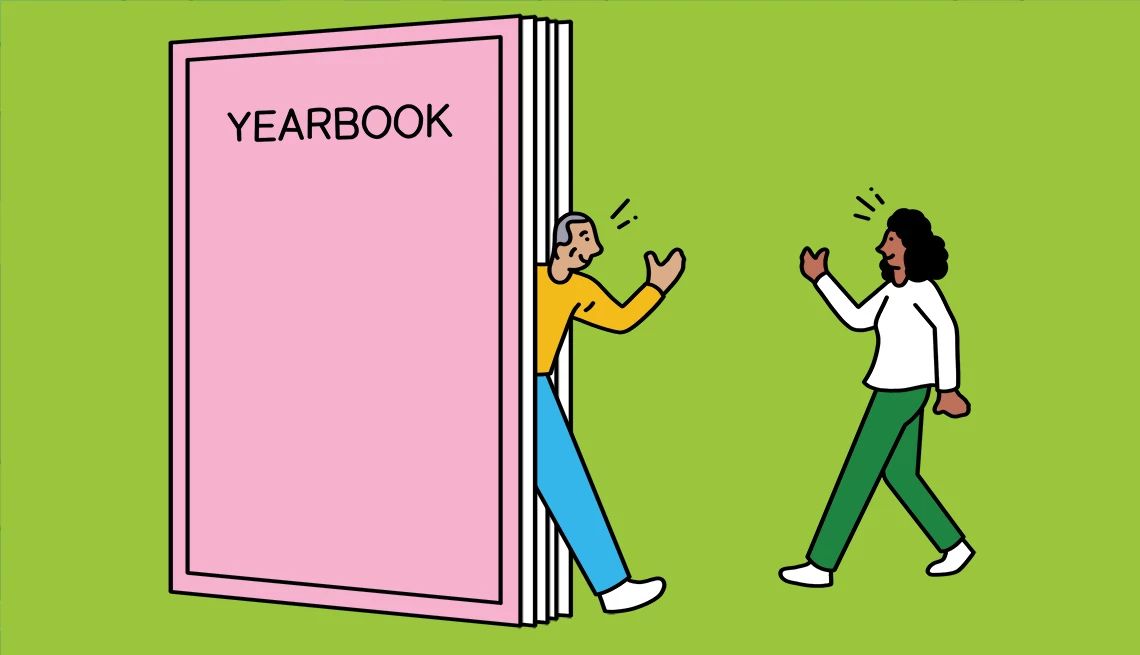AARP Hearing Center


Social interaction — including making new friends — is a key to happiness as we age, according to a 2024 AARP survey of 1,010 adults age 50+, which found that 74% of surveyed adults pointed to in-person socializing and 49% pointed to virtual socializing as factors.
But despite the clear benefits of socializing, 22% of people surveyed said they get together with friends less than once a week. This can lead to loneliness, which can affect your health, increasing your risk for heart attacks, strokes, diabetes, infections, dementia and premature death. Making new friends can be difficult, but that's where AARP can help. Here are 25 strategies to help you find your new BFFs.
1. Leave the house
The only way to make new friends is by leaving your comfort zone, both figuratively and literally. “You can sit around your living room and complain about how lonely you are, but nothing will change until you leave the house and come to where the people are,” says Rebecca G. Adams, a professor of sociology and gerontology at the University of North Carolina, Greensboro. “It doesn’t work the other way around.”
2. Assume people like you
We all underestimate our likability, says Marisa Franco, a psychologist and author of Platonic: How the Science of Attachment Can Help You Make — and Keep — Friends. In fact, she points to a 2018 study, which found that people consistently underestimate how much (or even if) others like them, a phenomenon called “the liking gap.” Remembering this “can keep us from being paralyzed by fears of rejection,” Franco says. “When we assume we’ll be liked, it’s more likely that we actually will be liked.”
3. Do the things you love
Do you love going to sports events? Or seeing live music? Going to concerts isn’t just good for our mental health; it can also be a place to find future friends. “Follow your bliss, and your people will be there,” Adams says. “I’m a big live music fan, and I go to the same venues over and over. I tend to see the same people at these shows, and we start to recognize each other.” Before even opening your mouth and saying hello, you have something in common.
4. Become a volunteer
A 2020 study from the University of Massachusetts found that older adults (especially women) were likely to make new friends while volunteering. “It offers a way to get to know people while engaged in something meaningful without the potential awkwardness of cocktail party small talk,” says Lydia Denworth, an award-winning science journalist and author of Friendship: The Evolution, Biology, and Extraordinary Power of Life’s Fundamental Bond. Not sure where to start? AARP has many volunteering opportunities across the country.


5. Get a dog
Adopting a dog can be good for your mental and physical health, especially for people over 50. But it can also be a way to find new friends. In a 2024 poll from Purina, nearly half of dog owners in the U.K. said they made at least one new friend while walking their dog, and 66 percent said it encouraged them to be more social. Before deciding on your new furry companion, make sure you consider the right breed for your personality.
6. Keep showing up
There’s a theory called the “mere exposure effect,” which suggests that we develop a fondness for people just by being around them for long periods. “Frequent exposure to people does tend to be the basis for many of our friendships,” says Amie Gordon, an assistant professor of psychology at the University of Michigan who studies the biology of relationships. “It’s why we know our next-door neighbor better than the person five houses down.” The more other people see you and interact with you, the more likely they are to want to pursue a friendship with you.
7. Remember that you’re not the only one afraid of rejection
Roughly 12 percent of U.S. adults will struggle with social anxiety disorder at some point in their lives, according to the National Institute of Mental Health. But don’t let their (or your) anxiety stop a friendship from blossoming. “Many people decide whether to invest in a relationship based on our view of how likely we are to get rejected,” Franco says. “So when we show people ‘I like you,’ we’re telling them, ‘Hey, you’re not going to get rejected if you try to be friends with me.’” Make sure they know how happy you are to meet them and how great you think they are. A little flattery will go a long way.
8. Make the plans
Nobody wants to be the first person to suggest a friendship outing. What if they say no? What if you get rejected? Adams is experiencing this dilemma firsthand. “I met this woman that I have so much in common with, and we've had several meaningful interactions in public,” she says. “I keep thinking, ‘I'm going to invite her over.’ It takes a lot of bravery to get to that point.” But it’s important to be proactive and take that leap, she says, even if it terrifies us.































.jpg?crop=true&anchor=13,195&q=80&color=ffffffff&u=lywnjt&w=2008&h=1154)



































You Might Also Like
What Can I Do About My Loneliness?
A doctor's advice for what to do when you feel alone
How to Fill Your Retirement With Fun
Geocaching, creating a terrarium, learning a new language and more, we have tips to find the best hobby for you25 Great Ways to Step Outside Your Comfort Zone
Push past complacency by trying things you’ve never done before